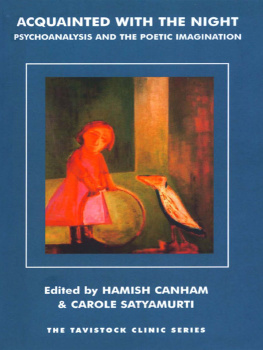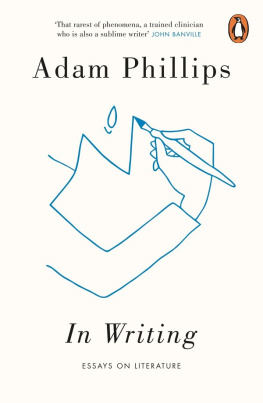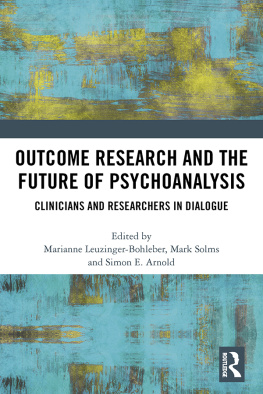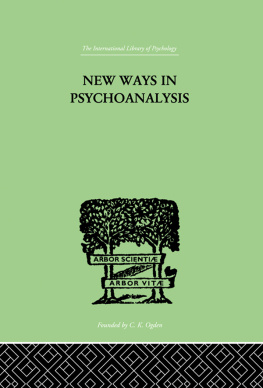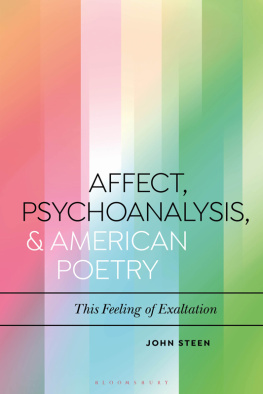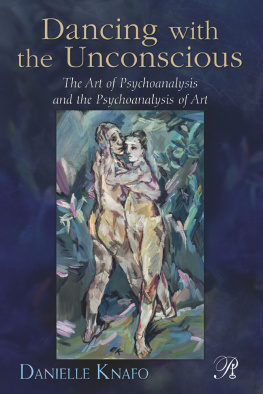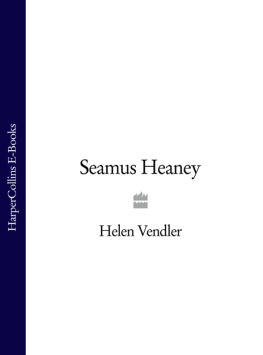First published in 2003 by
Karnac Books Ltd.
118 Finchley Road,
London NW3 5HT
Reprinted 2006
Copyright 2003 Arrangement and Introduction Hamish Canham and Carole Satyamurti Copyright 2003 Chapter 1 Margot Waddell Copyright 2003 Chapter 2 Carole Satyamurti Copyright 2003 Chapter 3 Michael Maltby Copyright 2003 Chapter 4 Priscilla Green Copyright 2003 Chapter 5 Kate Barrows Copyright 2003 Chapter 6 Ronald Britton Copyright 2003 Chapter 7 Graham Shulman Copyright 2003 Chapter 8 Judith Edwards Copyright 2003 Chapter 9 Hamish Canham
The rights of all the above persons to be identified as the authors of this work have been asserted in accordance with 77 and 78 of the Copyright Design and Patents Act 1988.
All rights reserved. No part of this publication may be reproduced, stored in a retrieval system, or transmitted, in any form or by any means, electronic, mechanical, photocopying, recording, or otherwise, without the prior written permission of the publisher.
British Library Cataloguing in Publication Data
A CLP. for this book is available from the British Library
ISBN-10: 1 85575 963 2 ISBN-13: 978 1 85575 963 3
Edited, designed, and produced by The Studio Publishing Services Ltd, Exeter EX4 8JN
Printed in Great Britain by Biddies Ltd, www.biddles.co.uk
10 98765432 1
www.karnacbooks.com
This book is dedicated to
Hamish Canhams wife and children
Hazel, Mabel and Oliver.
ACKNOWLEDGEMENTS
Thanks are due to the following:
Random House Books for permission to use the phrase acquainted with the night, from the poem of the same name by Robert Frost, as the title of the current volume; Carcanet Press for permission to reproduce The Broken Bowl by James Merrill;
Bloodaxe Books for permission to reproduce A Surprise on the First Day of School and Vertigo by Anne Stevenson, and Between the Lines and Passed On by Carole Satyamurti; The Journal of Child Psychotherapy (http://www.tandf.co.uk) for permission to reprint Priscilla Greens article, The Poet and the Superego;
Faber & Faber for permission to quote from Collected Poems by W. H. Auden and from Death of a Naturalist, Seeing Things, The Spirit Level, North, The Haw Lantern, all by Seamus Heaney.
SERIES EDITORS PREFACE
S ince it was founded in 1920, the Tavistock Clinic has developed a wide range of therapeutic approaches to mental health that have been strongly influenced by psychoanalysis. It has also adopted systemic family therapy as a theoretical model and a clinical approach to family problems. The Clinic is the largest training institution in Britain for mental health, providing postgraduate and qualifying courses in social work, psychology, psychiatry, child, adolescent, and adult psychotherapy, as well as in nursing and primary care. It trains about 1,400 students each year in over 45 courses.
The Clinics philosophy is aimed at promoting therapeutic methods in mental health. Its work is founded on the clinical expertise which is the basis of its consultancy work and research. This series aims to make available the clinical, theoretical, and research work that is most influential at the Tavistock Clinic. It sets out new approaches in the understanding and treatment of psychological disturbance in children, adolescents, and adults, both as individuals and in families.
While this book was in the final stages of preparation, Hamish Canham fell ill. He died on 5 July 2003. His death is an immense loss to everyone who knew him.
The papers in Acquainted With The Night, each in its instructively thoughtful, scholarly, and subtle way, elaborate various contemporary perspectives on the relationship between psychoanalysis and poetry. As the editors make clear, the aim is not to psychoanalyse poets, but rather to examine the ways in which each medium, whether clinical or literary, explores and expresses the symbolic process as a means of understanding psychic reality.
Both generally and specifically in relation to individual poets, the authors illuminate the role of some central psychoanalytic concernsthose of containment and reparation, for example, and of mourning and lossin furthering reflection on the psychic determinants of the nature of imaginative life and of creativity. All the papers are lodged in the practice or experience of psychoanalysis or psychoanalytic psychotherapy rather than simply the theory, and dreams and childrens play are drawn on, as are the details of the way language is usedthat is, the meaningfulness of language itself. At once challenging and enriching, this volume takes its place in a long tradition within the Tavistock Clinic of drawing together aspects of cultural life with the working life of the Clinic.
Margot Waddell
Series Editor
Table of Contents
FOREWORD
Al Alvarez
P sychoanalysis and literature have been close partners from the start, not least because Freud himself read widely and wrote compelling prose. Both these accomplishments were unusual in a scientist and they generated in him an even more unusual respect for the arts. When, during the celebration of his 70th birthday, one of his disciples hailed Freud as the discoverer of the unconscious, he answered, The poets and philosophers before me discovered the unconscious. What I discovered was the scientific method by which the unconscious can be studied.
Freud, with his interest in archaeology, worked like a novelist to recreate the past. The patient told his story from his point of view and the analyst told it back to him, using his interpretations to give it new meaning, and creating form and significance out of the chaos of the unconscious, especially as it expresses itself in dreams. And because dreams, in their loopy way, seem creative, this led to a fundamental misunderstanding of the nature of art, particularly in the early days of psychoanalysis, when the idea of sexual symbolism was still fresh and exciting and subversive. Instead of reading, say, a poem as a work of art with a life of its own independent of the creatoras something which, in Coleridges words, contains in itself the reason why it is so and not otherwisepsychoanalysts with a taste for literature often used it as though it were mere dream-stuff, welling up uncensored and unbidden, another royal road to the unconscious of the unfortunate author.
A century later, psychoanalysts tend to be less interested in weaving stories and digging up the past. They concentrate, instead, on the transference and counter-transferenceon what is happening between the patient and the therapist in the here-and-now of the consulting room, where the story matters less than how it is told. Instead of looking for clues, they are listening, like critics, to the overtones and undertones, alert to false notes, monitoring when and why they are moved andequally importantwhen and why they are bored. Its all about nuancesabout body language and tone of voice, about what is said and what is left unsaid.
Thanks to this shift of focus, the contributors to this book have not fallen into the trap of treating poetry as though it were clinical material. They see it, mostly, as a kind of parallel universe that they can use to illustrate and illuminate states of mind they must deal with in their work. This makes good sense, since the business of poetry is not just to express thoughts and feelings in the purest, most concentrated form, but also to think about them or even, as Bion put it, to make them thinkable. Psychoanalysis tries to do the same and, at their best, interpretations can sometimes be as intuitive and creative as a work of art.
As an art-form, however, psychoanalysis has very little to do with imaginative writing and a great deal in common with literary criticism. Or rather, with criticism as it used to be in the days before it was hijacked by extra-literary preoccupations, such as theory, gender, politics, race and, indeed, psychoanalysis. True criticism, the kind practised by masters like Coleridge and Eliot, comes without theoretical baggage and with nothing to prove. In order to find out what is going on in a work of art, the critic must let go of his own sensibility and immerse himself in that of the artist, without theories and without preconceptions. All that is required of him is attention and detachmentlistening, thinking, and giving himself up all at the same time. And that, I assume, is much the same as the evenly suspended attention with which, said Freud, the therapist listens to a patient.

